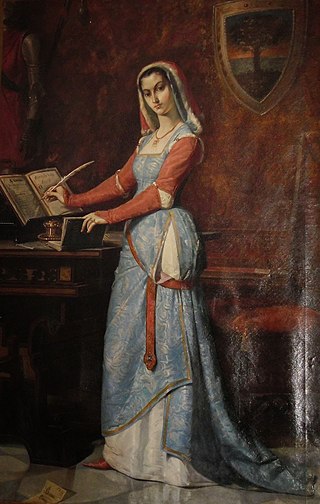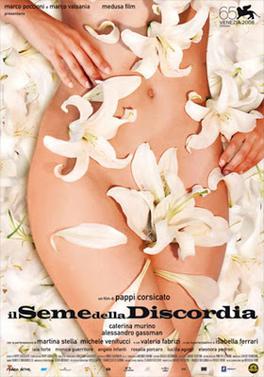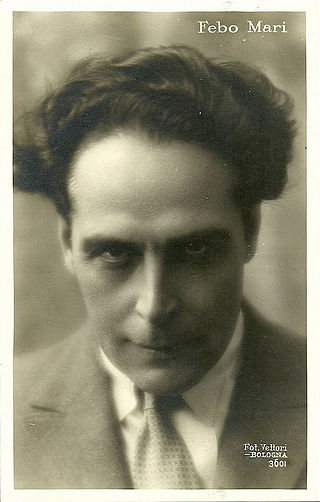
Grazia Maria Cosima Damiana Deledda was an Italian writer who received the Nobel Prize for Literature in 1926 "for her idealistically inspired writings which with plastic clarity picture the life on her native island [i.e. Sardinia] and with depth and sympathy deal with human problems in general". She was the first Italian woman to receive the prize, and only the second woman in general after Selma Lagerlöf was awarded hers in 1909.

Anna Maria Magnani was an Italian actress. She was known for her explosive acting and earthy, realistic portrayals of characters.

Eleanor of Arborea or Eleanor De Serra Bas was one of the most powerful and important, and one of the last, judges of the Judicate of Arborea in Sardinia, and Sardinia's most famous heroine. She is also known for updating of the Carta de Logu, promulgated by her father Marianus IV and revisited by her brother Hugh III.

Eleonora Giulia Amalia Duse, often known simply as Duse, was an Italian actress, rated by many as the greatest of her time. She performed in many countries, notably in the plays of Gabriele D'Annunzio and Henrik Ibsen. Duse achieved a unique power of conviction and verity on the stage through intense absorption in the character, "eliminating the self" as she put it, and letting the qualities emerge from within, not imposed through artifice.
The Lady of the Camellias, sometimes called Camille in English, is a novel by Alexandre Dumas fils. First published in 1848 and subsequently adapted by Dumas for the stage, the play premiered at the Théâtre du Vaudeville in Paris, France, on February 2, 1852. It was an instant success. Shortly thereafter, Italian composer Giuseppe Verdi set about putting the story to music in the 1853 opera La traviata, with female protagonist Marguerite Gautier renamed Violetta Valéry.

Stella Maris is a 1918 American silent drama film directed by Marshall Neilan, written by Frances Marion and based on William John Locke's 1913 novel of the same name. The film stars Mary Pickford in dual roles as the title character and an orphan servant.

The Seed of Discord is a 2008 Italian film. The film is a modernisation of Heinrich von Kleist's novel The Marquise of O. It was entered into the main competition at the 65th Venice International Film Festival.

Cuando llega el amor is a Mexican telenovela produced by Carla Estrada for Televisa in 1990.
Assunta Spina is a 1930 Italian silent drama film directed by Roberto Roberti and starring Rina De Liguoro and Febo Mari. It is based on the play of the same title by Salvatore Di Giacomo.

Salvatore Mannuzzu was an Italian writer, politician, and magistrate.

Michela Murgia was an Italian novelist, playwright, and radio personality. She was a winner of the Premio Campiello, the Mondello International Literary Prize and Dessì prize, and was an active feminist and left-wing voice in the Italian public scene, speaking out on themes such as euthanasia and LGBTQ+ rights.
Domenicangela Lina Unali has been professor of English literature at the Faculty of Letters, University of Rome Tor Vergata since 1983. Previously, from 1969 to 1982, she taught at the University of Cagliari. She was Secretary and Treasurer of AISNA in the years 1971-1973.

Canne al vento is a novel by the Italian author and Nobel Prize winner Grazia Deledda. After being published by episodes on L'Illustrazione Italiana, in the period January 13–27, 1913, it was released as a volume by editor Fratelli Treves in Milan. It's considered the most notable work written by Deledda. The title of the book is an allusion to human frailty and sorrow, which was already found in Elias Portolu, written in 1900: Uomini siamo, Elias, uomini fragili come canne, pensaci bene. Al di sopra di noi c'è una forza che non possiamo vincere.

Febo Mari (1884–1939) was an Italian actor and film director. He found success as a leading man during Italy's silent film era.
Madeleine Férat is an 1868 novel by the French writer Émile Zola. It was Zola's fourth novel, written immediately after Thérèse Raquin, which had been Zola's first commercial and artistic success. It was published in 1868, first under the title La Honte in serial form, then in volume under the title Madeleine Férat by Albert Lacroix, with a dedication to the painter Manet. It is the fictionalised version of a play which had not been accepted.

Shiera Sanders-Hall is a superheroine, the first Hawkgirl appearing in American comic books published by DC Comics. Shiera Sanders Hall was created by writer Gardner Fox and artist Dennis Neville, and first appeared in Flash Comics #1 as a romantic interest of Hawkman. Then later as one of DC's earliest super-heroines, she has appeared in many of the company's flagship team-up titles including the Justice Society of America.

Altura is a 1949 Italian crime melodrama film directed by Mario Sequi and starring Massimo Girotti, Roldano Lupi and Eleonora Rossi Drago. It is set in Sardinia and portrays a struggle between large landowners and a co-operative of shepherds.

Italia Marianna Vitaliani was an Italian stage and silent film actress.

The 1926 Nobel Prize in Literature was awarded to the Italian author Grazia Deledda "for her idealistically inspired writings, which with plastic clarity picture the life on her native island and with depth and sympathy deal with human problems in general." She was the second Italian and second female Nobel laureate in literature.














